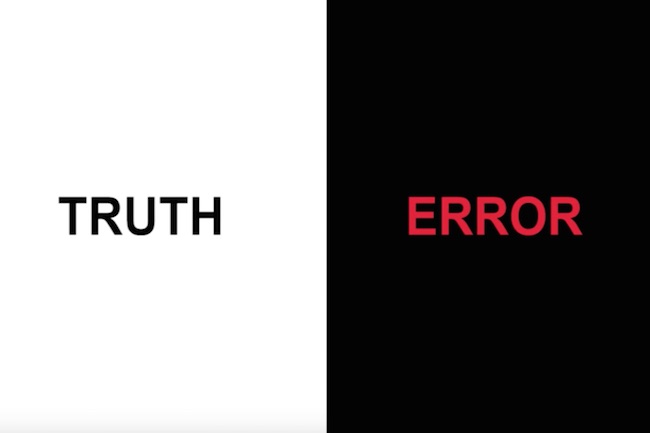Can We Please Stop Saying ‘My Truth’? by Eric Geiger for The Gospel Coalition
GNN Note – Finally!! There is “truth” and there are lies. Truth does not belong to anyone, and the truth, actual truth, doesn’t even care if you believe it or not.
******
Leaders know the leadership axiom “words create worlds”—the words we use in our ministries and organizations create the cultures we live and lead in. Sometimes inaccurate and hurtful phrases become so frequently used and so commonly expressed that they should be corrected.
“My truth” is one of those phrases that should be reconsidered. You’ve likely heard “That is my truth,” or “Know your truth.” We should stop saying that phrase. You may have to catch yourself, since it’s one of the phrases that has caught on, one of those phrases people use without even knowing why they’re doing so.
How dare I suggest that someone not speak “their truth”? But what if this is my truth? Shouldn’t I be able to speak my truth? See, your truth (and my truth) may not the be the truth—and that’s not just my truth but the truth.
Here are two reasons to remove the term “my truth” from your vocabulary.
1. It’s illogical.
Leaders often insist on “one source of truth” when they analyze and evaluate data and metrics surrounding their work. There’s immense frustration when people show up to meetings with different data because they’re pulling reports from different sources or pulling from their own perceptions. Inevitably someone will say, “This is ridiculous. We need one source of truth.” No wise person in the meeting disagrees. No one suggests, “Let’s just all go back to our work and live our truth.” That would be insane, since one group would be responding to inaccuracies. No, people need to return to their work and their roles responding to the actual truth.
Certainly, there are multiple views or interpretations of truth, but there is one truth. There are multiple ways to express the truth, but there is one truth. Declaring something as “my truth” gives the inaccurate and unhelpful perception that truth is changing, that truth is not a constant and inevitable reality we must reckon with. It does not help people—it hurts them, since it leaves them without anything consistent or trustworthy on which to stand.
Certainly, there are multiple views or interpretations of truth, but there is one truth. There are multiple ways to express the truth, but there is one truth. Declaring something as “my truth” gives the inaccurate and unhelpful perception that truth is changing, that truth is not a constant and inevitable reality we must reckon with. It does not help people—it hurts them, since it leaves them without anything consistent or trustworthy on which to stand.




